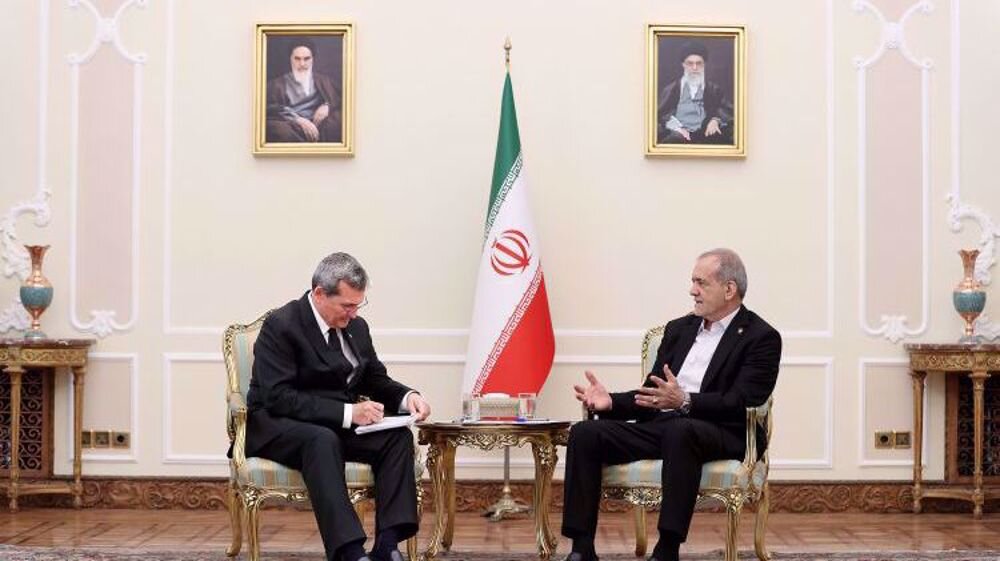Stronger Iran-Turkmenistan ties key to regional prosperity: Pezeshkian

TEHRAN – Iranian President Masoud Pezeshkian has underlined Iran’s strong desire to broaden and deepen relations with neighboring Turkmenistan, highlighting energy, trade, and infrastructure as key areas of cooperation with vast untapped potential.
Speaking during a high-level meeting in Tehran on Tuesday with Turkmenistan’s Foreign Minister Rashid Meredov, President Pezeshkian emphasized that stronger ties between Tehran and Ashgabat would not only benefit both nations economically but also promote regional stability and security.
“Deepening bilateral cooperation—particularly through joint investments—can secure a future of prosperity, friendship, and mutual trust for both countries,” said Pezeshkian. “We believe that through collaborative projects, we can ensure lasting comfort and security for our peoples.”
Energy cooperation took center stage in the talks. President Pezeshkian reaffirmed Iran’s interest in importing natural gas from Turkmenistan, pointing to the Islamic Republic’s strategic capability to act as a regional gas hub through exports and swap arrangements with its neighbors.
Highlighting the importance of infrastructure, he called for the construction of a dedicated pipeline between Iran and Turkmenistan to support a range of objectives—from domestic consumption and exports to regional gas swap mechanisms.
“In addition to the energy sector, we are also keen to expand ties in transport, trade, investment, and cultural exchanges,” he added, noting that the two countries share longstanding historical and cultural connections that can be leveraged for broader engagement.
Foreign Minister Meredov, who is visiting Tehran to attend the 18th meeting of the Iran-Turkmenistan Joint Economic Cooperation Commission, echoed the sentiment. He said Ashgabat views Iran as a key partner in long-term economic strategy and is committed to expanding trade corridors, improving cross-border markets, and enhancing energy transit routes.
"Turkmenistan sees significant opportunities in cooperating with Iran, particularly in the transit and export of natural gas through its territory,” Meredov noted, adding that the Central Asian country is eager to expand its access to global markets through Iranian infrastructure.
In recent years, Iran and Turkmenistan have signed several natural gas swap agreements, enabling Iran to receive gas from Turkmenistan and deliver equivalent volumes to third countries such as Azerbaijan and Iraq. These arrangements have strengthened Iran’s ability to meet domestic demand in its northeastern regions, home to major industrial and population centers.
Additionally, Iran imports nearly two billion kilowatt hours of electricity annually from Turkmenistan to help meet peak power demands in the same region—an area that often experiences shortfalls during high-consumption periods.
